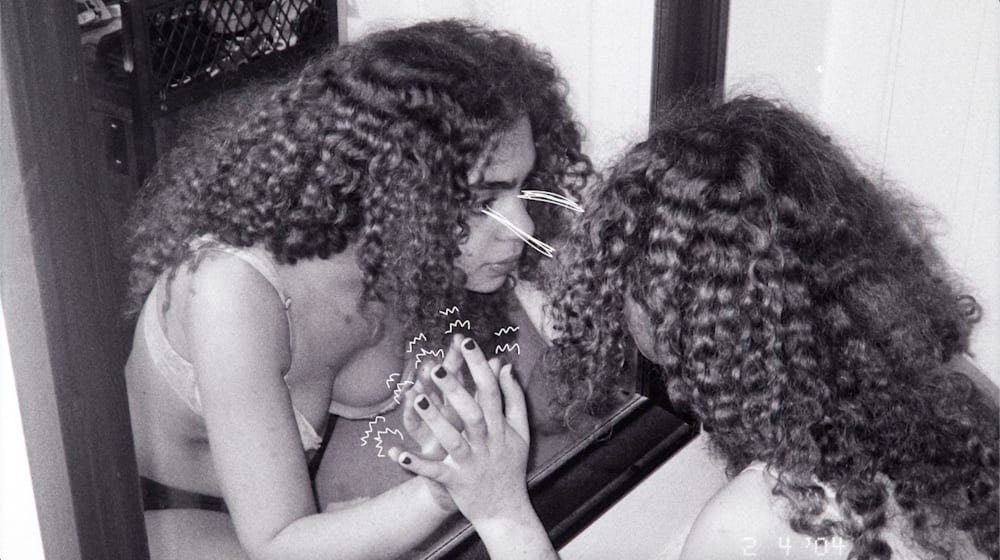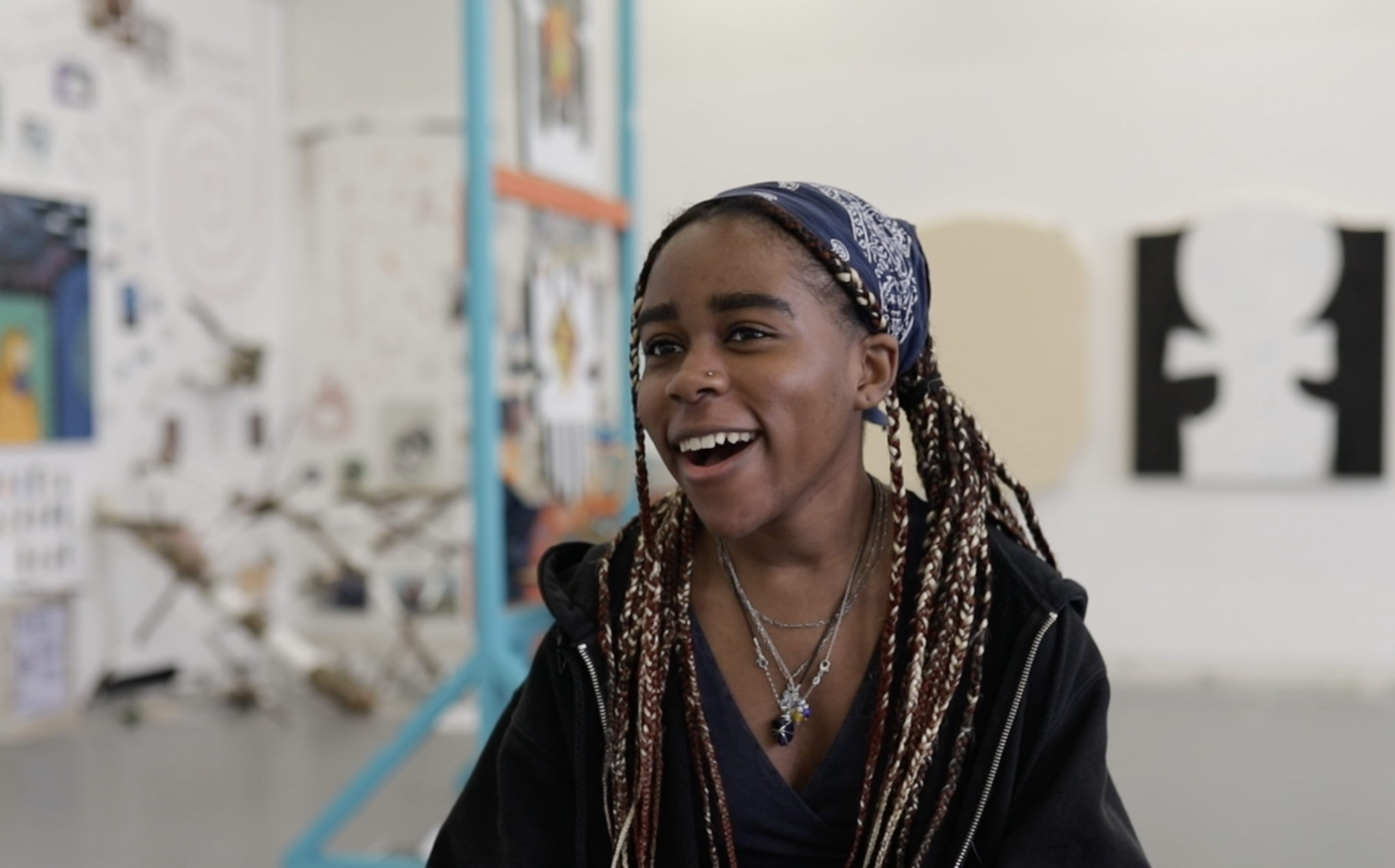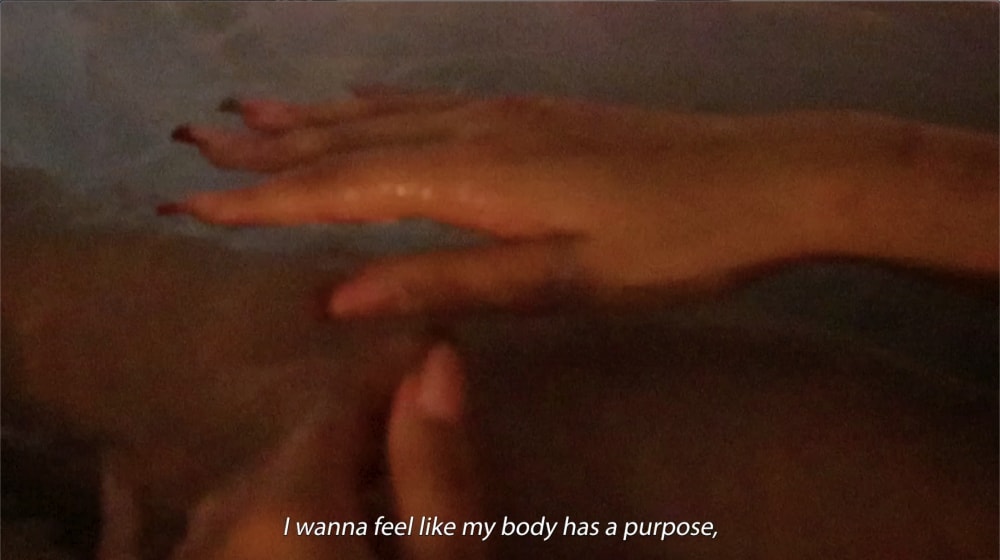
Love, body dysmorphia and the joys and turbulences of growing up: Aarony Bailey wants to explore it all

- Written byAnnika Loebig
- Published date 31 May 2022

As a Black South-Londoner, Aarony Bailey never saw her life reflected on screen when she began sharing a love for film with her dad. Since embarking on a mission to disrupt mainstream representations in the moving image and photography industry, Aarony has worked both in front of and behind the camera as a production assistant, actress, and even as a film journalist with Into Film’s Young Reporter Programme between the ages of 14 and 16.
Fast forward a few years and today Aarony finds herself in her second-year studying Fine Art at Central Saint Martins, specialising in film and photography. She explores a variety of topics including body dysmorphia, anxiety and depression, love and sexuality, and her experiences of growing up as a Black girl in South London.
“I guess at the moment my work is mainly focused on me, but I’m taking a bit of a detour into myself within sex and female sexuality and sexual liberation within women, talking about a lot of subjects which I think are extremely taboo to talk about,” Aarony says. “For example, STDs or having trouble with penetration or emotional feelings you have before or during or after sex, and relationships and friends with benefits – I feel like these topics aren’t fully explored in cinema, unless it’s a comedy, in which case it’s just not taken seriously.”

One of her recently completed projects is called ‘My Body in Your Hands’ - a short film focusing on the relationship with her body and body dysmorphia. She explains how her work allows her to reflect on the impact the condition has had on her, and what it feels like when your body has never felt like your own.
The film’s storyline explores the awkwardness, discomfort and uncertainty after a sexual encounter, centring the experience of a girl with body dysmorphia trying to combat the voice telling her she’s not good enough even in the face of someone else’s validation, as well as the feeling of handing over ownership over her body to someone she’s intimate with.
“The only way I’ve been able to tackle my body dysmorphia has been through my art, which is quite exciting and quite comforting; that I’m able to use my art in a way that’s therapeutic.”
Her interest in using the medium of film and character development to portray difficult themes and ideas has also pushed her to reflect a variety of perspectives in a way that transcends stereotypes:
“Mental health is both ignored and emphasised when it comes to Black people; we aren’t usually seen as people who are coping with mental illnesses, and instead play characters that inhabit extremes such as personality disorders or schizophrenia.”

Besides increasing the nuance and breadth of experiences of Black people represented on screen, including the feeling of not fitting certain stereotypes or feeling undesirable in a white, homogenous society, she’s also interested in having experiences reflected on screen that are unique to her alone:
“There’s just a lot of things that I don’t really resonate with: I didn’t grow up working class, I didn’t grow up in a Christian household, and so on. I grew up with artsy, Hippie parents in Southwest London, in a house in a quiet, suburban area in Tooting which is very multicultural.”
“I want to portray the joys of my own upbringing, of having parties in the park and going to Oxford Street; just stuff like that which I feel like I never see in cinema. While I want to do that in a comedic way, I also want to be able to show people who aren’t represented well in a way that’s exciting and informative, but not in a way that I’m just box-ticking. I also want it to feel authentic and like I’ve taken a memory from my childhood. It’s the only way I can imagine doing good work, so that’s where I see my work going.”